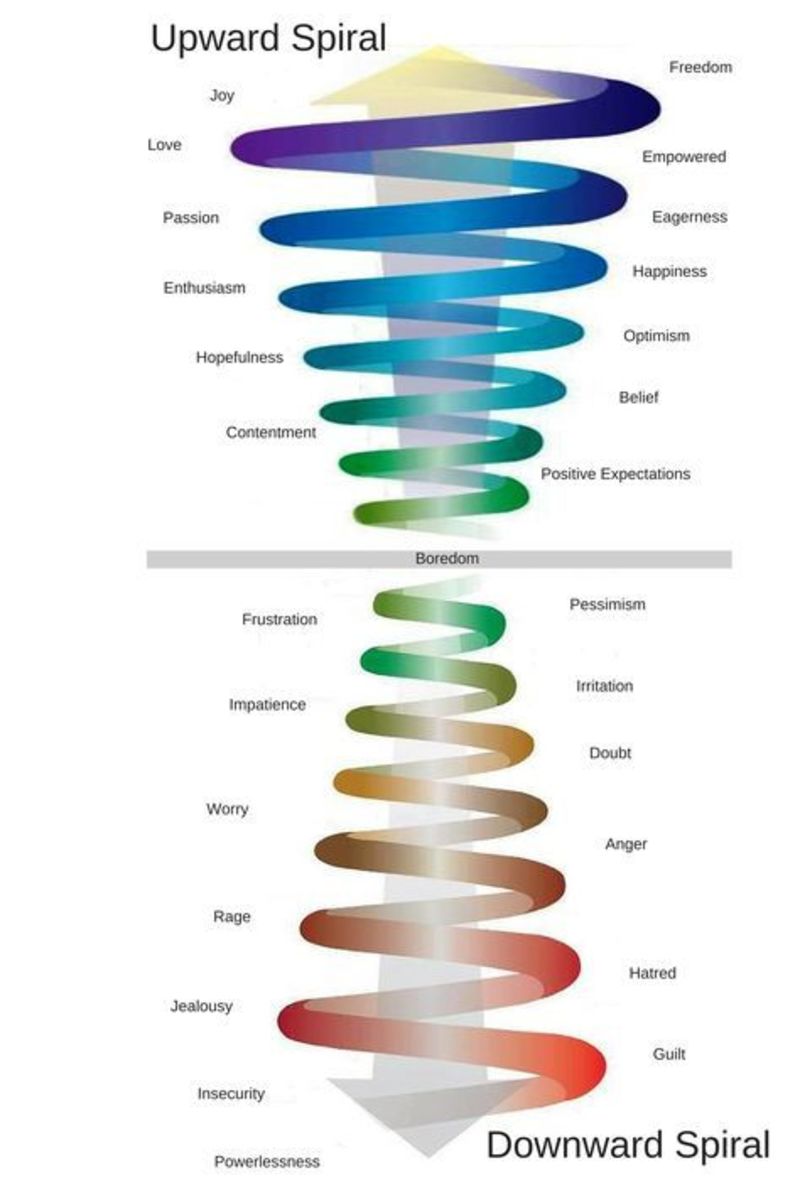Self-efficacy
Self Efficacy
Self-efficacy
Self-efficacy is the belief that one is capable of performing in a certain manner to attain certain goals. It is a belief that one has the capabilities to execute the courses of actions required to manage prospective situations. Unlike efficacy, which is the power to produce an effect (in essence, competence), self-efficacy is the belief (whether or not accurate) that one has the power to produce that effect. For example, a person with high self efficacy may engage in a more health related activity when an illness occurs, whereas a person with low self efficacy would harbor feelings of hopelessness.
It is important here to understand the distinction between self-esteem and self-efficacy. Self-efficacy relates to a person’s perception of their ability to reach a goal, whereas self-esteem relates to a person’s sense of self-worth.
Social cognitive theory
Self-efficacy is belief in our ability to succeed in specific situations. Your sense of self-efficacy can play a major role in how you approach goals, tasks, and challenges. The role of observational learning and social experience in the development of personality is the basics. People with high self-efficacy - that is, those who believe they can perform well - are more likely to view difficult tasks as something to be mastered rather than something to be avoided.
How self-efficacy affects human function
Choices regarding behavior
People will be more inclined to take on a task if they believe they can succeed. People generally avoid tasks where their self-efficacy is low, but will engage in tasks where their self-efficacy is high. People with a self-efficacy significantly beyond their actual ability often overestimate their ability to complete tasks, which can lead to difficulties. On the other hand, people with a self-efficacy significantly lower than their ability are unlikely to grow and expand their skills. ‘optimum’ level of self-efficacy is a little above ability, which encourages people to tackle challenging tasks and gain valuable experience.
Motivation
People with high self-efficacy in a task are more likely to make more of an effort, and persist longer, than those with low efficacy.The stronger the efficacy or mastery expectations, the more active the efforts.On the other hand, low self-efficacy provides an incentive to learn more about the subject. As a result, someone with a high efficacy may not prepare sufficiently for a task.
Thought patterns & responses
Low self-efficacy can lead people to believe tasks are harder than they actually are. This often results in poor task planning, as well as increased stress. Observational evidence shows that people become erratic and unpredictable when engaging in a task in which they have low efficacy. On the other hand, people with high self-efficacy often take a wider overview of a task in order to take the best route of action. People with high self-efficacy are shown to be encouraged by obstacles to make a greater effort. Self-efficacy also affects how people respond to failure. A person with a high self-efficacy will attribute the failure to external factors, where a person with low self-efficacy will attribute failure to low ability. For example; a person with high self-efficacy in regards to mathematics may attribute a poor result to a harder than usual test, feeling sick, lack of effort or insufficient preparation.
Health Behaviors
Health behaviors such as non-smoking, physical exercise, dieting, dental hygiene, seat belt use, or breast self-examination are, among others, dependent on one’s level of perceived self-efficacy . Self-efficacy beliefs are cognitions that determine whether health behavior change will be initiated, how much effort will be expended, and how long it will be sustained in the face of obstacles and failures. Self-efficacy influences the effort one puts forth to change risk behavior and the persistence to continue striving despite barriers and setbacks that may undermine motivation. Self-efficacy is directly related to health behavior, but it also affects health behaviors indirectly through its impact on goals. Self-efficacy influences the challenges that people take on as well as how high they set their goals.
Factors affecting self-efficacy
1. Experience
"Mastery experience" is the most important factor deciding a person's self-efficacy. Simply put, success raises self-efficacy, failure lowers it.
"Children cannot be fooled by empty praise and condescending encouragement. They may have to accept artificial bolstering of their self-esteem in lieu of something better, but what I call their accruing ego identity gains real strength only from wholehearted and consistent recognition of real accomplishment, that is, achievement that has meaning in their culture." (Erik Erikson)
2. Modelling - "Vicarious Experience"
“If they can do it, I can do it as well.” This is a process of comparison between a person and someone else. When people see someone succeeding at something, their self-efficacy will increase; and where they see people failing, their self-efficacy will decrease. This process is more effectual where the person sees themselves as similar to his or her model. If a peer who is perceived as having similar ability succeeds, this will usually increase an observer's self-efficacy. Although not as influential as past experience, modelling is a powerful influence when a person is particularly unsure of him- or herself.
3. Social Persuasions
Social persuasions relate to encouragements/discouragements. These can have a strong influence – most people remember times where something said to them significantly altered their confidence. Where positive persuasions increase self-efficacy, negative persuasions decrease it. It is generally easier to decrease someone's self-efficacy than it is to increase it.
4. Physiological Factors
In unusual, stressful situations, people commonly exhibit signs of distress; shakes, aches and pains, fatigue, fear, nausea, etc. A person's perceptions of these responses can markedly alter a person's self-efficacy. If a person gets 'butterflies in the stomach' before public speaking, those with low self-efficacy may take this as a sign of their own inability, thus decreasing their efficacy further,while those with high self-efficacy is likely to interpret such physiological signs as normal and unrelated to his or her actual ability. Thus, it is the person's belief in the implications of their physiological response that alters their self-efficacy, rather than the sheer power of the response.
Feelings of self-efficacy with respect to academic work, social interactions, and self-regulation influenced prosocial behavior (helping others, sharing, being kind and cooperative) and whether or not a child could avoid moral responsibility. Self-regulatory self-efficacy and academic self-efficacy have a negative relationship with moral disengagement (making excuses for bad behavior, avoiding responsibility for consequences, blaming the victim).Social Self-Efficacy has a positive relationship with prosocial behavior. On the other hand, moral disengagement and prosocial behavior have a negative relationship.The three types of self-efficacy are positively related.
Over-Efficaciousness in Learning
Research on learning has indicated that in certain circumstances, having less self-efficacy for a subject may be helpful, as negative attitudes towards how quickly/well one will learn can actually prove of benefit.
Models of Health Behavior Change
Social-cognitive models of health behavior change include the construct of perceived self-efficacy either as predictors, mediators, or moderators. Self-efficacy is supposed to facilitate the forming of behavioral intentions, the development of action plans, and the initiation of action. Moreover, self-efficacy can assist relapse prevention. As a moderator, self-efficacy can support the translation of intentions into action.







